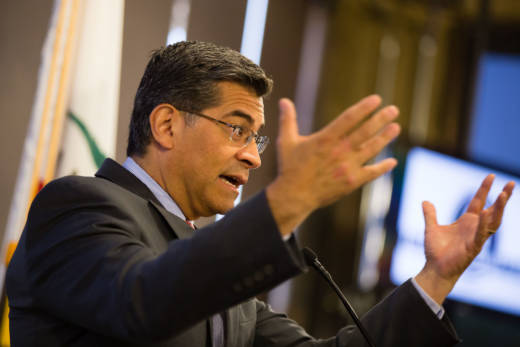“The Courts have previously rebuffed different versions of this blatantly discriminatory anti-Muslim travel ban,” he said. “Yet, the Trump Administration continues to play games with the lives of thousands of people who work and attend college here, play by the rules, and have helped our state become the sixth-largest economy in the world. The ban serves a political agenda rooted in fear and bias. California will continue to welcome and embrace people of goodwill from all backgrounds, religions, and ethnicities. Any other philosophy is un-American.”
Becerra and the other attorneys general are asking a court to temporarily halt enforcement of the ban while their lawsuit challenging its constitutionality plays out. In a 64-page brief requesting the restraining order, the states argued that even though non-Muslim countries were added to the order, it is "still motivated by a discriminatory purpose."
"The new order features fresh window dressing, but the core policy remains the same," the attorneys general wrote, adding that like the two previous orders, the newest directive "continues to target Muslim-majority countries, a focus that, together with the President’s history of demagoguery towards Islam, demonstrates that (it) is again motivated by a discriminatory purpose and is irrational."
And, like the previous orders, the new one "will inflict grievous harms on the States and their residents," the brief states. "There is one startling difference: this time, the ban is indefinite."
Trump first called for a complete ban on travel to the United States by Muslims in December 2015, though he has since denied that he was pushing a religious test. Instead, since taking office, his administration has sought to frame it as a security issue. In the latest order, Trump wrote that the countries being targeted have inadequate vetting processes and don't share information with the U.S.
But Becerra wrote in the brief that the order treats countries inconsistently and violates multiple constitutional rights.
California stands to be disproportionately affected by the ban, given its large immigrant population -- including more than 250,000 people from the countries included in the new restrictions, he wrote.
Becerra cited the impact on students and faculty members at the state's public universities; the harm to rural, underserved communities that have doctors from impacted countries; and the economic impacts, including an estimated $50 million a year in lost tax revenue from decreased tourism.

